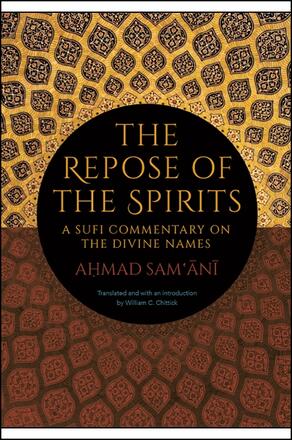
The Repose of the Spirits
A Sufi Commentary on the Divine Names
Alternative formats available from:
Major new translation of a unique and important Persian treatise on divine names in the Islamic tradition.
Description
The Repose of the Spirits is a translation of one of the earliest and most comprehensive treatises on Sufism in the Persian language. Written by Aḥmad Sam'ānī, an expert in Islamic law from a famous Central Asian scholarly family in about the year 1135, it is one of the handful of early Sufi texts available in English and is by far the most accessible. It also may well be the longest and the most accurately translated. Ostensibly a commentary on the divine names, it avoids the abstract discourse of theological nitpicking and explains the human significance of the names with a delightful mix of Quranic verses and sayings of the Prophet and various past teachers, interspersed with original interpretations of the received wisdom. Unlike the usual books on the divine names (such as that of al-Ghazali), The Repose of the Spirits reminds the reader of the later poetical tradition, especially the work of Rumi. The prose is richly embroidered with imagery and interspersed with a great variety of Arabic and Persian poetry. What is especially remarkable is the manner in which the author speaks to his readers about their own personal situations, explaining why they are driven by a love affair with God, a God who is full of compassion and good humor, whether they know it or not. William C. Chittick's masterful new translation brings this work to an English-language audience for the first time.
William C. Chittick is SUNY Distinguished Professor at Stony Brook University, State University of New York. He is the author of several books, including Faith and Practice of Islam: Three Thirteenth Century Sufi Texts and The Self-Disclosure of God: Principles of Ibn al-'Arabī's Cosmology, both also published by SUNY Press.
Reviews
"Chittick's translation is beautifully and masterfully done, and a model of how to translate Sufi classics … This work is highly recommended for all students of Islamic studies, spiritual seekers, and those who wish to be taken inside the sanctity of the Divine Names." — Religious Studies Review
"This book is a welcome and much needed contribution to Islamic Studies, and it is particularly beneficial for both graduate and undergraduate courses on Sufism, Islamic spirituality, and Islamic civilizations." — Journal of Sufi Studies
"This is a wonderful introduction to the particular style, imagery, terminology, and worldview of Sufism, as well as to the ways in which the Persian cultural milieu added important elements to the Arabic intellectual and spiritual tradition in Islam." — Maria Massi Dakake, author of The Charismatic Community: Shi'ite Identity in Early Islam